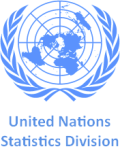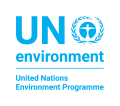Project Database

Recognizing the importance of its forest resources to national development, the Government of Colombia (GoC) has set a goal to achieve zero net deforestation by 2020. GGGI is helping the GoC to achieve this sustainable, low-carbon growth goal through the Amazon Vision project. Developed and implemented in partnership with the...

The Government of Colombia has identified green growth as critical to maintaining development in the years to come and has made it a priority to implement inclusive and environmentally sustainable growth principles into the country’s development planning. GGGI is supporting the Government of Colombia to establish green growth as a...


Recognizing that balanced urbanization is key for sustaining growth, reducing poverty and achieving upper middle-income status by 2030, the Royal Government of Cambodia (RGC) has identified the importance of investing in urban infrastructure and improving urban planning will be critical. GGGI is helping the RGC efforts to utilize green growth...



UNDP established the Green Commodities Programme (GCP) in 2009, with the mission to transform agricultural production and trade around the world through multi-stakeholder collaboration and the establishment of effective national enabling environments in producer countries.
Agricultural commodities are the engine of economic growth in rural areas of emerging markets where...

The overall goal of the project is to strengthen national statistical systems in developing countries to enable them to effectively produce statistical indicators on green economy and green growth in the context of sustainable development.
The project aims to strengthen green economy and sustainable development indicators and its underlying statistics...
This project aims to conduct an integrated global assessment of the costs of action and inaction against land degradation. Land degradation is a global problem, affecting about a quarter of global land area. Moreover, about half of the global very poor live on degraded land. Given that the poor heavily...

The project “Enhancing South-South Cooperation – Building the Capacity of Developing Countries to Promote Green Economies” was based on the often-articulated wish of developing countries to exchange and share good practices with other countries of the South. The project had two key objectives. The first was to facilitate knowledge exchange...
